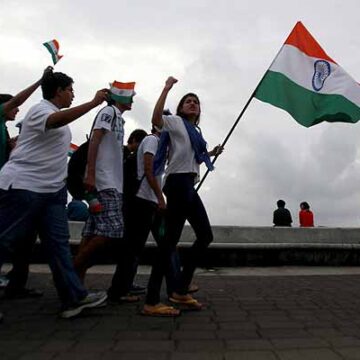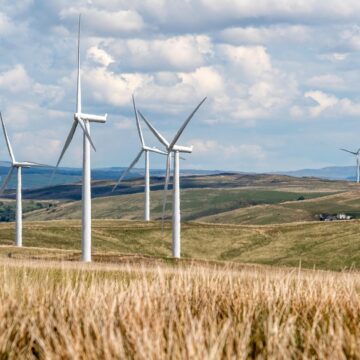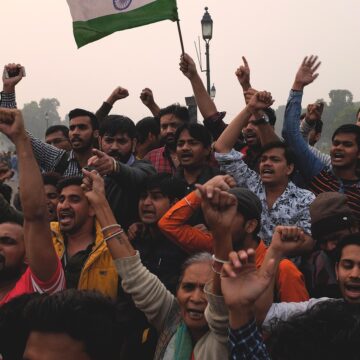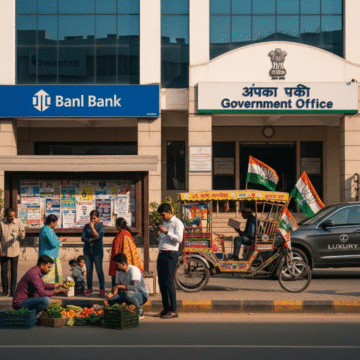In the vast and varied political landscape of India, a significant shift is underway as young politicians step into the limelight, advocating for progressive changes and shaping the discourse of a new India. This generational shift in politics is not just about changing faces but also about altering the substance and focus of policy-making. The...
Category: Politics & Power
How Uttar Pradesh Is Empowering Women for a Brighter Future : Transforming lives through strategic policies and impactful initiatives.
Introduction Uttar Pradesh, often seen as a microcosm of India, is making commendable strides in empowering women through comprehensive policies and transformative programs. With a focus on education, economic participation, safety, and social welfare, the state is creating pathways for women to thrive in every aspect of life. By prioritizing gender equality and inclusion, Uttar...
The Need for Political Education: Are We Preparing the Youth?
As democracies around the world face complex challenges, the importance of political education becomes increasingly evident. In India, with its vast youth population and dynamic political landscape, the question arises: Are we adequately preparing our young people to engage knowledgeably and responsibly in politics? This critical examination seeks to address the current state of political...
Uttar Pradesh’s Strategic Initiatives for Clean Energy: A Future Vision
Key Highlights: Introduction As part of its ambitious environmental agenda, Uttar Pradesh is actively transitioning towards a sustainable energy model. With a comprehensive strategy that includes scaling up solar, wind, and biomass energy, Uttar Pradesh is tackling the dual challenges of energy demand and environmental preservation. The state’s initiatives are designed to not only foster...
How Do Economic Opportunities Influence Youth Participation in Politics? Understanding the link between economic empowerment and political engagement.
Introduction Economic opportunities and youth political participation are deeply interconnected. For young people, access to stable income, education, and career prospects shapes their ability and willingness to engage in political processes. In India, where over 65% of the population is under 35, economic conditions play a pivotal role in determining how youth interact with politics. This...
The Weight of UP: How Its Political Landscape Influences National Agendas
Key Metrics: Lucknow, 2025 — Uttar Pradesh (UP) is not just a state; it is a political powerhouse that wields unmatched influence over India’s national agendas. With the largest representation in Parliament, UP’s political landscape often determines the shape of central government policies and the trajectory of national politics. This article explores how UP’s electoral weight...
UP’s 80 Lok Sabha Seats: Key to National Political Strategies
Key Metrics: Lucknow, 2025 — Uttar Pradesh (UP), with its 80 Lok Sabha seats, remains a pivotal force in shaping India’s national political strategies. As the state with the largest number of parliamentary seats, UP’s electoral outcomes are crucial for any political party aiming for dominance at the central level. This article explores how UP’s significant...
Uttar Pradesh: The Political Powerhouse Driving India’s Future
Lucknow, 2025 — Uttar Pradesh (UP) continues to stand as a colossus in Indian politics with its substantial electoral influence shaped by its 80 Lok Sabha seats and 31 Rajya Sabha seats. This significant representation makes UP a decisive factor in national governance and policy-making. This article delves into how UP’s vast political influence shapes the...
Meerut’s Political Landscape: Are We Seeing a Shift in Ideologies?
A Historic City at the Crossroads of Tradition and Modernity Grapples with Changing Political Alignments Key Metrics: Meerut, 2025 – With its rich history as a center of India’s freedom struggle and a critical node in Western Uttar Pradesh’s politics, Meerut has long been a microcosm of the region’s socio-political trends. However, recent electoral shifts, a...
Capitalism and Democracy: Are They True Allies or Uneasy Partners in India?
New Delhi, India, 2025 — As one of the world’s largest democracies and fastest-growing economies, India presents a fascinating case study on the interplay between capitalism and democracy. While the country’s embrace of market-driven reforms since the 1991 liberalization has propelled economic growth, questions persist about whether capitalism complements or contradicts India’s democratic ideals of equality, inclusivity, and justice....









